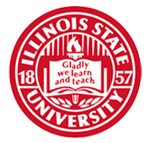Abstract
Purpose
The purpose of this study was to investigate the effect of the supervision-questioning-feedback (SQF) model of supervision on critical thinking in graduate students studying speech-language pathology. The researchers hypothesized that students who were provided with the SQF model of supervision would score higher than students who received the non-SQF (NSQF) style of supervision on the selected critical thinking measures.
Method
Seventeen out of 24 first semester graduate students in speech-language pathology completing their on-site university-based clinical practicum experience consented to participate in the study. Of the 17 participating first semester students, 9 were randomly assigned to 1 of 3 SQF trained supervisors, and the other 8 were randomly assigned to 1 of 2 NSQF trained supervisors for the duration of 1 semester. Additionally, 3 out of 24 fourth semester graduate students completing their off-site externship experience and their supervisors consented to participate in the study. Four additional study participants served as independent SQF-trained raters charged with the task of analyzing video recorded student-supervisor conferences to determine whether the SQF model of supervision was being implemented. Prior to and at the conclusion of the clinical experience, all participating students completed two measures of critical thinking: (1) California Critical Thinking Skills Test (CCTST) and (2) two Simucase® clinical simulations. At the conclusion of the clinical experience, seventeen out of 20 participating students (11/12 SQF students and 6/8 NSQF students) completed a post-survey rating their supervisory experience
.
Results
For participating first semester students, there were no overall statistically significant differences between SQF and NSQF groups as measured by pre to post completion of (1) CCTST (p=.544) and (2) two Simucase® clinical simulations (p=.781). The 3 participating fourth semester students who received the SQF model of supervision also showed no statistically significant differences on pre to post completion of the (1) CCTST (p=.827) and (2) two Simucase® virtual cases (p=.879). Results from SQF ratings revealed variability in the implementation of the SQF model across supervisors with a moderate level of inter-rater agreement. Results from post surveys completed by students showed that students preferred the SQF model of supervision over the NSQF model (p=.044).
Conclusion
Results from this preliminary study indicated that the SQF model did not influence the overall outcomes on the selected critical thinking measures. Student preference for the SQF model may support existing evidence that learning clinicians want to be actively engaged in the supervisory process. There were several limitations to this study including the small sample size, variability in the implementation of the SQF model across supervisors, sensitivity of the selected critical thinking measures, and timing of post-intervention procedures. Further investigation of the effects of SQF on students’ critical thinking is warranted.
Recommended Citation
Dalessio (Procaccini), S. J.,
Carlino, N.,
Barnum, M. G.,
Joseph, D.,
&
Sovak, M. M.
(2021).
A Pilot Study Investigating the Effect of the Supervision-Questioning-Feedback Model of Supervision on Stimulating Critical Thinking in Speech-Language Pathology Graduate Students.
Teaching and Learning in Communication Sciences & Disorders, 5(1).
DOI: https://doi.org/10.30707/TLCSD5.1.1624982519.507364




